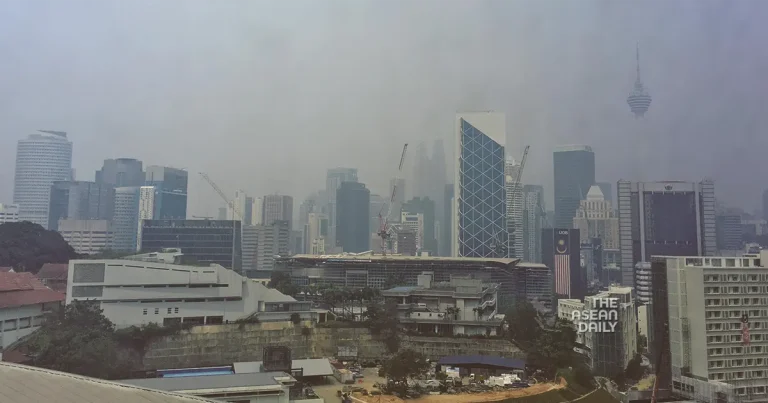9-9-2023 (KUALA LUMPUR) The city of Kuala Lumpur is grappling with a resurgence of haze pollution, raising significant public health concerns. Malaysians are being urged to comprehend the associated health risks and take effective preventive measures, according to a statement by a health expert.
Dr. Kow Ken Siong, a Consultant Respiratory and Internal Medicine Physician at Sunway Medical Centre, emphasized that chronic exposure to poor air quality, including haze, can result in respiratory diseases such as asthma, chronic obstructive pulmonary disease (COPD), pneumonia, and lung cancer.
In 2019, air pollution, including haze, was identified as the third leading cause of global deaths, with links to premature mortality, infections, and various diseases. Dr. Kow stated, “In Malaysia, these conditions significantly contribute to hospitalizations and deaths, accounting for nearly 20% of public hospitals and over 12% of private hospitals in 2020.”
Given the persistent nature of haze in Malaysia, it is crucial for Malaysians to comprehend how it affects respiratory health and adopt preventive measures to safeguard their well-being, Dr. Kow emphasized.
Dr. Kow further explained the impact of fine particulate matters in haze, which have a diameter of less than 2.5 microns. Inhalation of these particulates can have lasting effects, and short-term exposure may lead to acute bronchitis symptoms such as cough, phlegm, chest tightness, breathlessness, and lethargy.
“Vulnerable groups, including children, the elderly, and individuals with pre-existing conditions such as asthma and cardiovascular diseases, face higher risks. Repeated exposure to haze over several years can exacerbate pre-existing chronic lung conditions, increase the risk of lung cancer, and result in frequent bronchitis episodes. Even individuals without prior health issues may develop upper respiratory symptoms and become more susceptible to viral infections,” Dr. Kow warned.
To mitigate the risks associated with haze, Dr. Kow advised Malaysians to take preventive steps during periods of poor air quality. These steps include staying indoors as much as possible, using high-quality air purifiers equipped with High-Efficiency Particulate Air (Hepa) filters, and staying hydrated throughout the day.
For prolonged outdoor exposure, Dr. Kow recommended the usage of N95 face masks, which effectively filter out harmful fine particulate matter. Additionally, he encouraged Malaysians to monitor air quality through official sources, limit outdoor activities, and seek professional medical advice if they experience any lung or heart symptoms.
“Staying informed and seeking timely medical attention is essential to safeguarding lung health amidst recurring haze challenges,” Dr. Kow concluded.
In light of the alarming resurgence of haze pollution in Kuala Lumpur, it is crucial for the public to heed the advice of health experts and take proactive measures to protect themselves from the adverse health effects of poor air quality. By prioritizing respiratory well-being and adopting preventive strategies, Malaysians can mitigate the risks associated with haze pollution and maintain their overall health and well-being.




